

| Title | Author | Call# | Book Cover |
|---|---|---|---|
| The Blind Watchmaker | Dawkins, Richard. | QH 366.2 .D37 1987 | 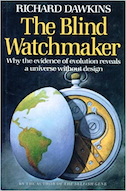 |
| Hacking Darwin | Metzl, Jamie Frederic. | QH 437 .M48 2019 | 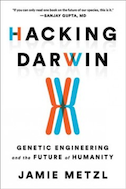 |
| The Origin of Species | Darwin, Charles | QH 365 .O2 2004 | 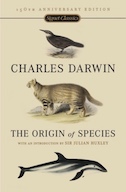 |
| An Immense World | Yong, Ed | QP 431 .Y68 2022 | 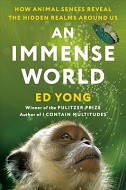 |
| Biology: Exploring the Diversity of Life | Russell, Peter J. | QH 308.2 .R88 2018 | 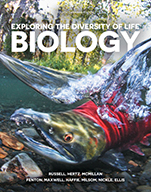 |
| Biology: How Life Works | Morris, James (James R.) | QH 308.2 .M677 2019 | 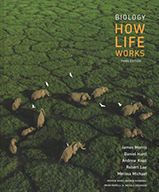 |
| Biology: Science for Life, With Physiology | Belk, Colleen M. | QH 307.2 .B43 2019 | 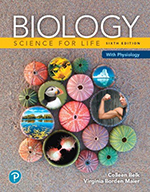 |
| Biological Science | Freeman, Scott | QH 308.2 .F73 2019 | 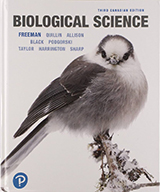 |
| Essential Cell Biology | Alberts, Bruce | QH 581.2 .E78 2023 | 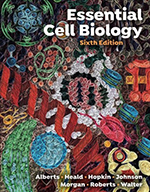 |
| Fundamental Molecular Biology | Allison, Lizabeth A. 1958- | QH 506 .A45 2021 | 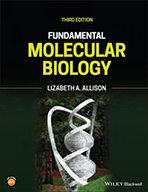 |
| What is Life?: Five Great Ideas in Biology | Nurse, Paul 1949- | QH 331 .N87 2021 | 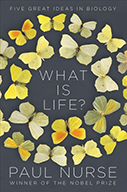 |
* Want to reserve one of these titles? Email library@alexandercollege.ca with your student # and the book title.
These e-Books are available in the online library collection. Click the title to access the resource.
Darwin, Charles & Gillian Beer. 1996
Physics and Biology: From Molecules to Life
Desbiolles, Pierre & Jean-François Allemand. 2015
Rathoure, Ashok Kumar & Srivastava, Meena. 2016
Cell and Molecular Biology for Environmental Engineers
Rogers, Ryan. 2018
The Architecture of Evolution: The Science of Form in Twentieth-Century Evolutionary Biology
Tamborini, Marco. 2022
Matlin, Karl S., Maienschein, Jane, & Ankeny, Rachel A. 2020
Future Humans: Inside the Science of Our Continuing Evolution
Solomon, Scott. 2016
These handbooks provide easy to digest information and facts about topics covered within biology.
Encyclopedia of Marine Mammals (2018) by J.G.M. Thewissen et al
This encyclopedia contains entries on all marine mammals including the taxonomy, animal sociology, interaction with humans, behaviour, and other topics.
When looking for resources related to BIOL, try some of these keywords in your searching:
Sample search: women AND genetics AND cancer
* Interested in learning more about using keywords for research? Check out our videos on how to create and search using keywords on our Research Skills page.
Textbooks
Anatomy and Physiology by J. Gordon Betts et al.This textbook was created for a two-semester human anatomy and physiology course for life science and allied health majors. The book is organized by body system.
Online Open Genetics by Todd Nickle and Isabelle Barrette-NgThis textbook examines the scientific study of genetics. It includes the study of genes, themselves, how they function, interact, and produce the visible and measurable characteristics we see in individuals and populations of species as they change from one generation to the next, over time, and in different environments.
Microbiology by Nina Parker et al.This textbook covers the scope and sequence requirements for a single-semester microbiology course for non-majors. The book presents the core concepts of microbiology with a focus on applications for careers in allied health.
Concepts of Biology by Charles Molnar et al.This textbook is a survey text, directed at those not majoring in biology or new to the subject.
Environmental Biology edited by Matthew R. Fisher This textbook is intended for a college-level audience and covers environmental issues from a biological perspective.
Biology 2e by Mary Ann Clark et al.This textbook was designed to cover the scope and sequence requirements of a typical two-semester biology course for science majors. The text provides coverage of foundational research and core biology concepts through an evolutionary lens.
Virtual Biology Lab is a free, online educational resource provided for educational purposes.
Khan Academy is an excellent resource to prepare yourself for biology courses.
Association of Professional Biology
The Association of Professional Biology (APB) represents Biology Professionals in British Columbia.
Assignments written for Biology courses usually use the APA rules for formatting. APA handbooks are available for your reference in the library or at the Writing and Learning Centre. Online WLC guides can be found here. You can also book an appointment with the Writing and Learning Centre for workshops and one-on-one citation help.
Need help? Connect with a Librarian through AskAway!
AskAway ChatAlexander College acknowledges that the land on which we usually gather is the traditional, ancestral and unceded territory of the Coast Salish peoples, including the territories of the xʷməθkwəy̓əm (Musqueam), Skwxwú7mesh (Squamish), and Səl̓ílwətaʔ/Selilwitulh (Tsleil-Waututh) Nations. We are grateful to have the opportunity to work in this territory.
Alexander College acknowledges that the land on which we usually gather is the traditional, ancestral and unceded territory of the Coast Salish peoples, including the territories of the xʷməθkwəy̓əm (Musqueam), Skwxwú7mesh (Squamish), and Səl̓ílwətaʔ/Selilwitulh (Tsleil-Waututh) Nations. We are grateful to have the opportunity to work in this territory.